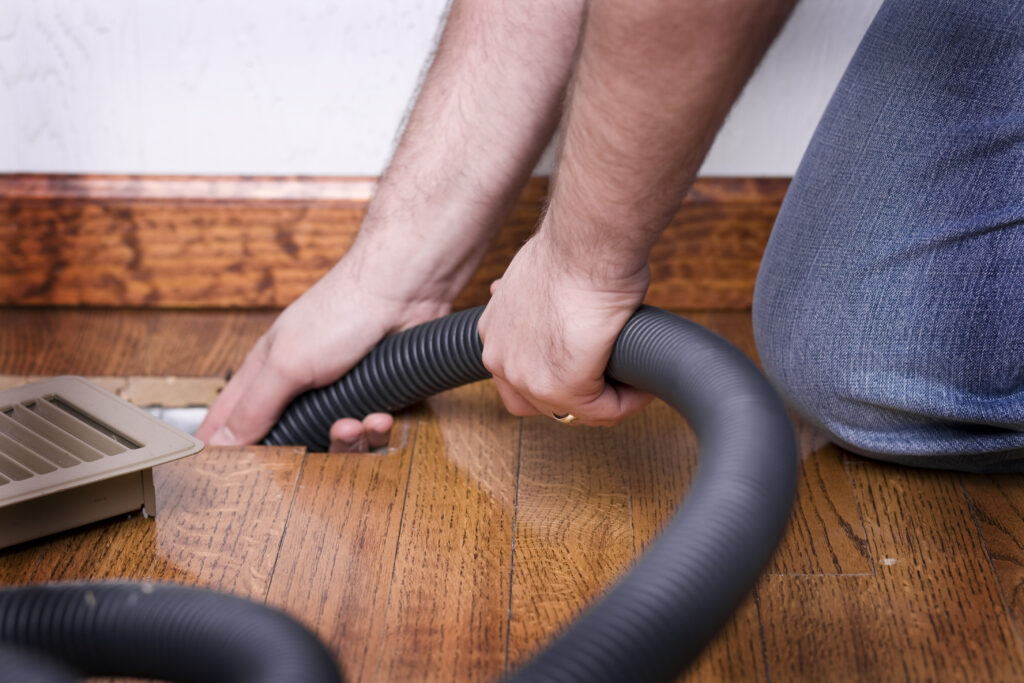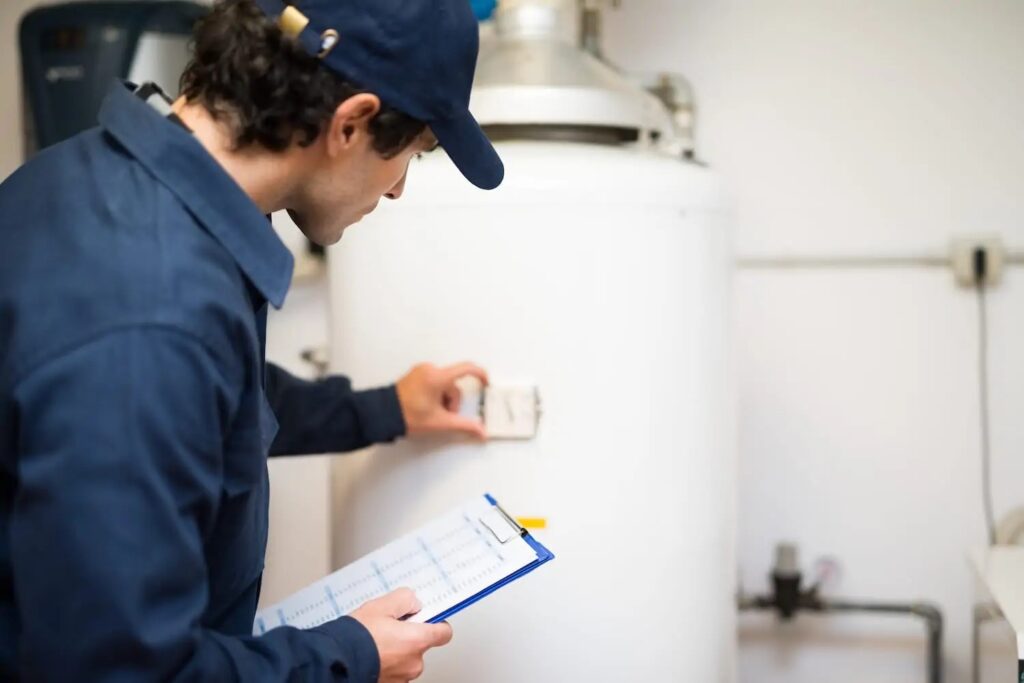Why Is My Water Heater Leaking from the Base?
If your water heater’s tank is leaking from the bottom, your first reaction might be panic. No one wants to have to replace their water heater unexpectedly, and the majority of homeowners aren’t financially prepared to purchase a large appliance in an emergency. Luckily, water around the bottom of your water heater doesn’t always spell doom. There are a couple of common causes that could be resolved with a simple repair:
Best Case Scenario: Drain Valve Leak
Your water heater has a drain valve that, true to its name, is used to drain the water from the tank when performing maintenance or repairs. If the drain valve is not completely closed, is loose, or is damaged, water will leak from it. This might look like a tank leak, but it is actually quite simple and inexpensive to repair.
Faulty Temperature & Pressure Relief Valve/Excess Pressure in Tank
A water heater’s temperature and pressure relief valve (T&P valve) is a vital safety measure. Its job is to release pressure if a water heater gets too hot, or if too much pressure builds up inside the tank. It is located on top of the tank, but it uses a tube to route any water it discharges to the floor. If it is faulty, it may activate and discharge water even when your tank pressure is normal. Another scenario could be that your tank pressure is not normal, and something is causing your water heater to build up too much pressure. In this case, your T&P valve would be functioning normally.
Worst Case Scenario – Internal Tank Leak
If water is leaking from the bottom of the tank itself, this is bad news. Once a water heater’s tank is cracked or corroded enough to leak, it loses structural integrity and will not be able to manage internal pressure. The most common cause of internal tank leaks is failure to properly maintain your water heater. A water heater’s tank should be flushed to remove sediment every 6 months. If this is not done, sediment can build up inside the tank, eventually causing corrosion. These leaks will start small, but will continue to grow larger due to pressure. If you have an internal tank leak, you will need to replace your water heater.
What To Do When Your Water Heater is Leaking From the Bottom
All the knowledge above is well and good, but what should you actually do when you discover a pool of water around your water heater? Follow these simple steps to stop the leak and diagnose the issue:
1. Turn off the water heater
The first thing you should do is turn it off. For electric water heaters, find your unit’s dedicated breaker on your electrical panel and turn it to the off position. For gas water heaters, simply find the on/off dial or switch on the water heater itself and turn it to off. You can also turn off the gas on a gas water heater. Look for a smaller lever towards the bottom of the heater. It may be red, blue, or yellow. Turn it to the OFF position.
2. Turn off the water supply
Look for a lever or valve near the top of your water heater. Turn it to the right to close the valve and cut off the supply of water.
3. Find the source of leak
Here’s how to check for the three common causes we discussed above:
- Drain valve – Find your drain valve and visually inspect it to see if water is coming out of it. If so, ensure that it is tightly closed. If water continues leaking from the drain valve, the valve may be faulty or damaged and will need to be replaced. Call a trusted plumber to perform this repair.
- T&P valve – Check the discharge tube from your T&P valve – if it is wet, it is most likely the source of the water. Call a plumber to check your water heater – they can replace a faulty T&P valve, or determine what is causing your unit to build up too much pressure. This is a safety issue, so don’t wait to address it!
- Tank – If you determine that the leak is not coming from the drain valve or T&P valve, the tank is the most likely culprit. Leaks can start as pinholes, so it may be difficult to actually find the source. Contact a reliable plumber right away to inspect your water heater. They will be able to verify that your tank is leaking, and can talk you through your options for replacement.
Best Course of Action: Call a Plumber for Water Heater Service
If your water heater keeps leaking after you check that the drain valve is tightly closed, call a reliable plumbing company for water heater repair service. If it turns out to be a small issue, you will spend relatively little money to ensure that your water heater is sound and stop the leak. If it’s a more serious matter, a plumber can fix dangerous safety failures or help you replace your water heater.
If your water heater is leaking in Dallas, Texas, call Frymire Home Services for water heater repair. Our expert team can quickly diagnose your water heater and make repairs to stop the leak. In the event of tank failure, we can help you replace your water heater with a new gas, electric, traditional, or tankless water heater.
For water heater repair and replacement in Dallas, count on the expert plumbers at Frymire Home Services. Call us at 972-913-2881 or contact us online today!






